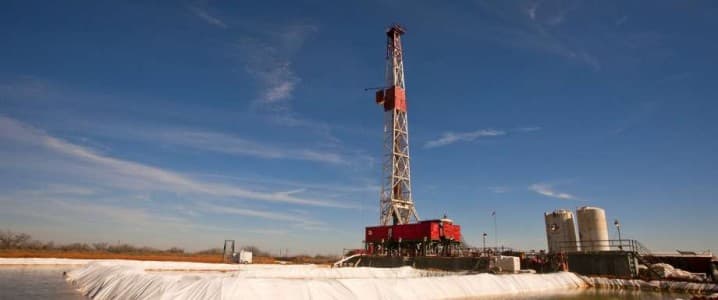
The Permian Basin, a critical oil-producing region in the United States, is grappling with a significant wastewater management crisis. Producing over 5 million barrels of oil daily, the area has seen a corresponding surge in wastewater, leading to environmental and operational challenges for drilling companies. Recently, legal disputes have emerged as companies begin to hold each other accountable for the negative impacts of wastewater disposal on their reserves.
In May 2023, the Texas Railroad Commission issued notices to companies seeking licenses for wastewater disposal wells in the basin. The notices highlighted issues related to ground pressure caused by wastewater disposal, prompting the commission to restrict the number of new disposal wells. This situation has escalated, with the commission noting that wastewater disposal has led to increased reservoir pressure, which poses risks to both mineral and freshwater resources in Texas.
The U.S. Geological Survey has documented a rise in seismic activity linked to deep wastewater injection, although it clarified that only a minority of disposal wells are responsible for noticeable quakes. In response to these findings, companies began shifting to shallower wells for wastewater disposal five years ago. However, the rapid increase in drilling activity has overwhelmed the ground’s capacity to handle the resultant wastewater, leading to further complications.
The Railroad Commission emphasized that wastewater disposal could result in “drilling hazards, hydrocarbon production losses, uncontrolled flows, ground surface deformation, and seismic activity.” As these problems arise, they threaten the stability of the industry and the safety of local resources.
Legal disputes are highlighting the conflict among drilling companies. Stateline Operating has filed a lawsuit against Devon Energy and Aris Water Solutions, alleging that wastewater from Devon’s operations has caused irreparable damage to its oil reserves. The lawsuit, initiated in April 2023, seeks $180 million in damages, claiming that the proximity of the disposal wells to Stateline’s assets has resulted in “permanent damage” to its production capabilities.
An El Paso court ruling in April denied a petition for appeal from Devon Energy and Aris Water Solutions, indicating the legal challenges are far from resolved. The attorney representing Aris Water Solutions stated, “Aris strongly disputes that any of the water disposed in its wells has somehow damaged Stateline Operating’s production.”
While the legal ramifications of these disputes continue to unfold, the immediate challenge remains: how to effectively manage the increasing volumes of wastewater. With both deep and shallow wells facing restrictions, companies are now considering alternatives such as recycling wastewater. However, recycling can significantly increase operational costs, posing a dilemma for profitability in an already strained market.
The volume of wastewater generated in the Permian Basin has expanded by sevenfold over the past 15 years, according to data from Enverus. This dramatic increase reflects the region’s transformation into the largest single oil-producing area in the United States. Unfortunately, the focus on extraction has often overshadowed the critical aspect of wastewater management, leading to the current crisis.
As regulators step in to impose limits on water pressure levels at disposal wells, the industry must confront these challenges head-on. The intertwining legal battles and environmental issues underscore the complexities of operating in a region where profit and sustainability must find a balance.
The Permian Basin now stands at a crossroads, with the future of its oil production possibly hinging on how effectively it can manage wastewater disposal and navigate the legal landscape that has emerged in response to these pressing challenges.







